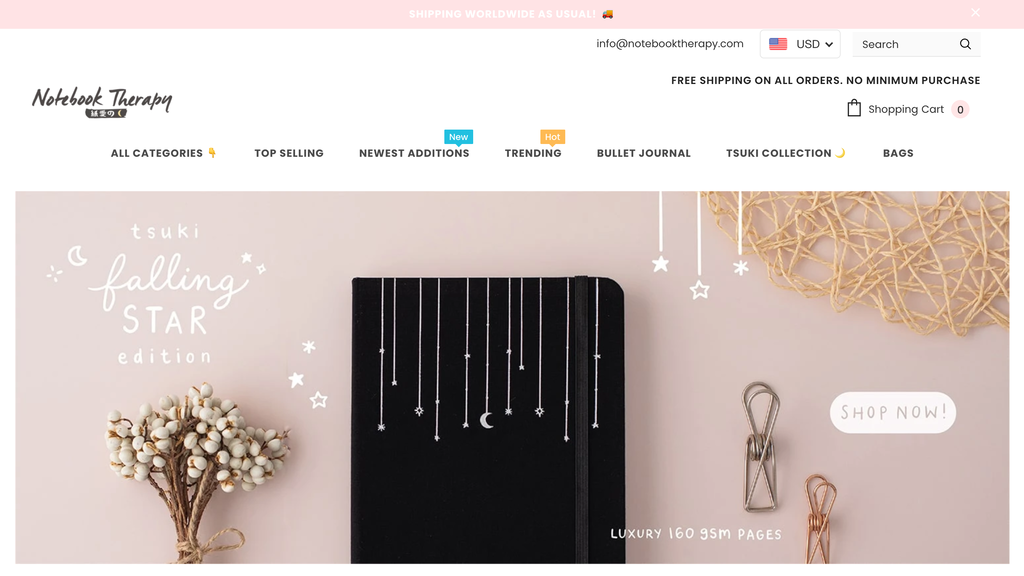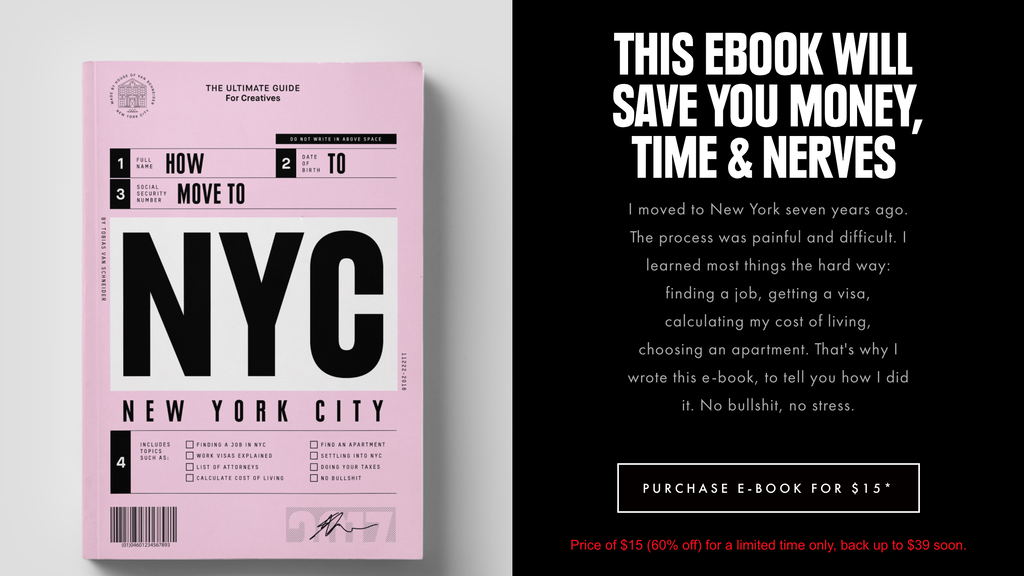eCommerce
October 28, 2020
22min Read
Maisha R.
Starting a small business is a great way to generate passive income. On top of that, if you plan well and work hard, there’s always the possibility of it becoming a highly profitable job. With the right tools and determination, even the smallest company can become a multi-million empire.
Of course, picking out the right small business idea is the first stepping stone to success.
32 Online Small Business Ideas
From small investments to long term strategies, we’ve gathered a list of the most profitable ideas for small business ventures.
1. Launch an eCommerce Store
Building an online store is a surefire way to create a profitable business. Digital shopping has become commonplace, resulting in an increase in worldwide eCommerce sales.
The best part – an online store doesn’t come with the difficulties of a brick and mortar counterpart. The startup costs are nowhere as high as there’s no need to pay rent for a physical shop.
All you need is an inventory and an online store platform to get started. There are many options to choose from, with WooCommerce being one of the most popular options as it’s used with the all-time favorite CMS, WordPress.
A great, beginner-friendly alternative for smaĺl businesses is to use a website builder. It’s an all-in-one platform that includes everything from hosting and a domain name, to eCommerce solutions for any new business.
How profitable the business will be, depends on various factors, such as the type of products and services offered and the target market size.
If you want to make money quickly, try to sell products that have low production costs and high margins. Some popular examples include jewelry, video games, and phone accessories. Digital products are also a good option since there’s no need to store them.
To be a successful eCommerce business owner, you need to be efficient in many different areas. You might need to dabble in product design, customer service, online marketing, and many other roles. Though it might sound challenging, it can be rewarding for those willing to learn on the job.
2. Start a Dropshipping Business
Want to sell online without having to make your own products? Dropshipping may be the best small business idea for you.
This eCommerce business model requires you to work with wholesale suppliers. After establishing a partnership, you can ask to have their items branded under your name which is referred to as white labeling.
When someone makes an order, you will notify the suppliers to ship the product to the customer.
In short, you’ll only need to worry about getting customers, while the supplier handles production, inventory, and shipping. That’s why dropshipping requires minimal upfront costs, ranging from $150 to $350.
If you’re interested in starting a dropshipping business, you will need to join wholesale supplier sites like Spocket or AliDropship. They will provide the products to feature on your website.
There are also services like Printify, which is an on-demand dropshipping service for t-shirts, jackets, mugs, and more. You can create custom designs and the company will take care of the printing and shipping.
When deciding what kind of items to sell, be sure to stick with a niche. This will help establish your brand and make you stand out against competitors.
For some inspiration, check out Notebook Therapy – this dropshipping store only features charming stationery products.

3. Make an Affiliate Marketing Website
Affiliate marketing is one of the best small business ideas for beginners on a low budget.
You promote someone else’s product or service and depending on the company’s policy, you get commissioned each time someone clicks on a link or buys the product.
Affiliate marketing is one of the main ways content creators make money. However, starting a small business from affiliate marketing alone is definitely possible.
Many people do this by creating a review site that contains links to products they recommend, such as This is Why I’m Broke.
 The key to being a successful affiliate marketer is to choose a niche you’re knowledgeable about, as this will help you establish authority. You need to build a loyal audience that will trust your opinion and will purchase the products you recommend.
The key to being a successful affiliate marketer is to choose a niche you’re knowledgeable about, as this will help you establish authority. You need to build a loyal audience that will trust your opinion and will purchase the products you recommend.
To start, join an affiliate program like our own Hostinger Affiliates, or Amazon.com Associates. There are also marketplaces like ClickBank, where you will find various products to feature.
How much you make depends on the product, commission size, and your website’s traffic. According to Affise, once you build an audience, you can expect to earn anywhere from $300 to $10,000 a day.
4. Become a Blogger
If you love writing and sharing your passions, blogging may be one of the best small business ideas to start with. You can work from home, create content, and make money in the process.
Many public figures, like Molly Yeh, started their career by blogging. Today, she has two cookbooks and hosts a Food Network show called Girl Meets Farm.
Having high website traffic is crucial to create a bankable blog. Many businesses see this as a vast conversion potential, which will make them more likely to partner with you.
With 100K pageviews a month, you can make between $1000 and $10,000.
To ensure this, pick a blog idea you’re familiar with that also has a large audience. This will help you build a strong readership from the get-go.
Then make sure to blog consistently to keep visitors engaged. Learn about SEO and content marketing to increase your website’s visibility on search engines.
Once you have a sizable audience, you can make money through ads, sponsored content, and affiliate links. Some bloggers also do guest posts for business blogs, make merchandise, and create online courses.
5. Write and Self-Publish Your Own Books
Gone are the days when you have to submit a manuscript to become an author. Self-publishing platforms are now available within an arm’s reach so that you can start a writing career any time you like.
Your main job will be to turn a story into a book. Any genre can do, but to create a bestseller, going with something popular among self-published book readers would only help you on your way. Examples include romance, mystery, fantasy, and science fiction.
After finalizing the book, put it up for sale through sites like Amazon KDP or Barnes and Noble Press. Both programs have a massive built-in user base and marketing tools to help you reach the right readers.
In fact, Amazon reported that thousands of its self-published writers have more than $50,000 in sales.
That said, you might not make much in the beginning, especially if you’re a first-time author. Therefore, it’s essential to check what policies they have on royalty payments to know how much money you can make.
Alternatively, consider selling the book on your own website for an additional income stream. Doing so will allow for more control over monetization. Also, create a landing page like Let’s Go to NYC to market your book through online ads.

6. Develop and Sell Mobile Apps
If you have an idea that can solve people’s problems, consider turning it into a mobile app.
Aim for something innovative, like NeuralCam Live. This camera app can hide your background and adjust video settings during a call.
Building an app requires development experience. If you’re a complete beginner, platforms like Udemy or Codecademy provide many mobile app courses. Though it will take more time and money to learn, you can create a more complex app as a result.
Or, use software like AppyPie. It has everything ready for you, so you don’t need any technical knowledge to get started with your mobile app development. However, having some knowledge in user interface and experience can ensure that the app is easy to navigate.
You can make the app available for sale or free to download.
With the latter option, it’s possible to make money by providing ad space and featuring in-app purchases. This way, you can reach as many people as possible, while still offering them the opportunity to make purchases.
7. Become an Online Advertising Specialist
As digital ads are becoming standard practice, many small business owners are in need of a field expert. You can take this opportunity to start a freelance career as an online ads specialist, also known as a PPC specialist.
This small business idea is perfect for those with online marketing experience. If you don’t have any, there are many online resources available to get started, like Google’s Digital Garage.
The job is to help people achieve their advertising goals across various platforms, like Google, Facebook, or Pinterest. You will create strategies based on their business and products so that the ads reach the right audience.
Thus, you have to offer more than just PPC bidding skills. You need to be familiar with project management, data analytics, the KPI system, and more.
When you’re ready to launch your career, join platforms like Hubstaff Talent or Upwork to look for clients. Consider creating a resume website and listing it on Google’s paid search to demonstrate your expertise.
There are several ways to charge for doing ad services. The most common method is charging by the percentage of the ad spend, between 10% and 20%. As a result, you can get paid no matter how the campaign turns out.
8. Launch a Web Development Business
Web development is another high-demand service. With most companies going digital, having an amazing website that stands out has become the rule rather than a recommendation.
If you want to start a small business in web development, mastering the primary coding languages used for website development is essential. These include HTML, JavaScript, PHP, and more. For beginners, look to sites like BitDegree to get started.
Additionally, being familiar with mobile development and UX design can make your website more attractive to potential customers. Since mobile users account for more than half of all internet traffic, a responsive website is now necessary.
To start, create a good-looking portfolio and show off your best projects. You can build websites from scratch or flip existing ones.
9. Start a Freelance Graphic Design Career
If you have a knack for graphic design, turning your talents into a full-time small business is a good idea.
You will put visuals together for your clients’ projects, such as logos, mockups, social media content, and more. Some graphic designers also sell prints and merchandise.
Using the right tools is vital for your success. At the very least, you need to get a powerful enough computer, a drawing tablet, and a digital pen. Shelling out thousands for a MacBook Pro is not the most cost-effective way of starting out. Plenty of Windows machines are available at a much lower cost, all you’re really losing out on is the Retina display.
Don’t forget to get familiar with popular programs like Adobe Photoshop and Illustrator.
Other than that, it’s crucial to have good communication skills so that you can convert your clients’ vision into reality.
According to the U.S. Bureau of Labor Statistics, the job market for graphic designers is getting competitive.
With that in mind, creating a visually-appealing portfolio is key to set yourself apart. Take a look at how designer Alex Coven does it on his website.

10. Offer Online Life Coaching Services
Life coaching is an affordable small business idea to start. All you need is a website, internet access, and a passion for helping people.
The task of a life coach is to assist people with accomplishing their personal and professional goals. That’s why counseling or social work experience can put you at headstart.
It’s also a good idea to get licensed through programs like iPEC. Having a certification can justify your pricing and services, making you more reputable for potential clients’ eyes.
Since you’re running an online business, you won’t be bound by location to look for clients. You can create a website to attract visitors from all over the globe, and coach people through one-on-one calls or video programs.
Don’t forget to promote your services through digital ads and social media. Alternatively, make a blog or podcast to drive more traffic and share your expertise, like Christine Chen.
11. Become a Dating Consultant
Dating consulting is one of the best small business ideas for people who love helping people to find matches.
You will work to help clients improve themselves so they can have a better love life. The job will mainly focus on developing interpersonal skills, building confidence, and preparing for the world of online dating.
How you conduct and sell your services depends on your preferences. If you want, you can create an all-in-one program on your website, like Cora Boyd. Her Magnetics Love School course includes coaching sessions, workshops, a members-only resource portal, and more.
 You can also follow in her footsteps to attract new clients. Aside from using social media, she likes to guest-post about dating topics on Tinder’s blog, Swipe Life.
You can also follow in her footsteps to attract new clients. Aside from using social media, she likes to guest-post about dating topics on Tinder’s blog, Swipe Life.
Similar to life coaching, you need some skills and training in counseling. Acquiring a coaching certification can also boost your credibility.
12. Work as a Translator
For multilingual speakers and writers, offering translation services is an excellent business idea. Using the skills you already have, you can translate different types of content, including subtitles, web copies, books, and more.
Have no professional experience? Join online translation classes and do your own trial projects. Once you’re confident, start this job as a side business. Platforms such as ProZ and Translated are well-known among freelance translators.
When you’re ready to go full-time, consider choosing a specialization to narrow down your focus. It will make your job easier since you’ll be working with a niche you’re familiar with. Plus, it can establish you as an expert in the field, which can increase your rates.
How much you charge for a project depends on the complexity, length, and language combination, among others. If you get certified by an official translators’ association like the ATA, the rate can justifiably increase.
13. Tutor Students Online
Online tutoring is an easy business to start from home that can be done part-time.
Tutors usually help elementary to university-level students with subjects of their choice, such as math or history. In this case, having a degree isn’t necessary, but you need to have some relevant teaching experience.
Other tutors may offer test prep services for language proficiency or school entrance exams. For this, a proven certification is essential to prove your competence.
If you’re looking to start, join sites like Chegg or Skooli. Both platforms already have their own user base, so finding students will be faster. You can teach through text, video calls, live whiteboards, and more.

Or, create a website to host your classes. Doing so will give more control over your schedule and monetization. What’s more, you can get more creative with the teaching methods.
14. Provide SEO Services
All website owners know that Google’s first page results are the most valuable. Unfortunately, only a small fraction of businesses know how to apply SEO to their sites, barely touching the potential of optimizing sites for search engines.
Get started as an SEO expert to analyze websites, identify any ranking issues, and create a plan to increase organic traffic and SERP placement.
Generally, a specialist should have a well-rounded understanding of on-page, off-page, and technical SEO. Thus, the skillset can range from HTML to keyword mapping to backlink building.
With that in mind, consider taking courses to increase your mastery before starting a business. Keeping up with the changing trends and using the right SEO tools will also go a long way.
The pricing rates of freelance SEO specialists vary by region and expertise. According to Ahrefs, the average rate is about $68 an hour.
15. Start a YouTube Channel
Have a magnetic personality? Turn it into cash through YouTube. This video-sharing giant has made it possible for many to launch a profitable business just by being on camera.
To start a YouTube channel, pick a niche that suits your interests. If you want to make a home-based business from your channel, genres like cooking, gaming, and tech reviews are great options.
The niche should also have a large audience so that you can build your follower base quickly. Once you’ve reached a thousand subscribers and four thousand watch hours, you’ll be eligible for the YouTube Partner Program.
From then on, you can make money through AdSense. It will also be easier for you to partner with businesses as they prefer channels with a sizable audience. Other ways of making money include merchandise and crowdfunding via Patreon.
To ensure a pleasant watching experience, invest in good video equipment. Using professional editing programs like Adobe Premiere Pro will also increase your chances as the bar is set really high.
To grow your business into a full-time gig, 50K+ daily views is a start. According to Influencer Marketing Hub, you can start earning $3,500/mo from those views alone. Anything above that can make your life comfortable enough to look at other ideas for a business as a side hustle.
16. Become a Micro-Influencer
If your social media followers are between a thousand and a hundred thousand, one of the best small business ideas to look at is becoming a micro-influencer.
As an influencer, you will work with businesses to promote their products or services to your audience. They might send items to review or propose a campaign collaboration. You can also join affiliate networks to find products to market.
The reason why brands like to work with micro-influencers is that they have a higher engagement level than macro or mega content creators. In other words, they have better chances of affecting their followers’ purchase decisions.
To get started, you need to have an attractive personal brand. Meaning, your profile should display your character and interests while showing a close relationship with the audience.
The posts have to show relevance to your niche and some interaction followers. Curate your profile to make it look more appealing to businesses.
Once you’ve partnered with a brand, it’s essential to incorporate their product naturally. The power of an influencer is their relatability and trustworthiness. Appearing like you’re selling out can quickly make your followers bailout.
17. Launch a Video Editing Business
Becoming a YouTuber isn’t the only viable career choice for people who like to make videos. If you’d rather do behind-the-scenes work, you can offer video editing services.
A lot of small business startups need videos for promotions and commercials.
Take a look at Lief Ramsaran. Besides being a filmmaker, she also works with YouTuber WithWendy to produce and edit her videos.
Since the primary tools are a computer and video editing software, you can turn this into a home business. You might also need extra external storage to store raw footage and Photoshop to make interesting graphics or thumbnails.
Other than that, an editor should have a storytelling mindset for the raw footage to make sense and have a good flow. A good video narrative should be easy to follow, engage the audience from beginning to end.
To market your business, create a video portfolio of all your previous projects. Then pitch your services to creative job portal sites like If You Could or Creativepool.

18. Work as a Virtual Assistant
If you have impeccable time management and organizational skills, this just might be the best business idea on this list.
As a virtual assistant, you will provide administrative support for entrepreneurs and online businesses remotely. The tasks generally include answering emails, scheduling appointments, personal shopping, and so on.
However, you may also perform special assignments like managing a website, social media accounts, customer relationships, and so on. Some virtual assistants like Sandee specialize in design services.
 Since the job description can vary, being able to learn and adapt quickly is essential.
Since the job description can vary, being able to learn and adapt quickly is essential.
To find virtual assistant work, websites like People Per Hour have tons of jobs available. You can also make a personal resume site to impress future clients and list yourself via online ads.
19. Manage Social Media for Small Businesses
Many small businesses work in small teams and need to hire freelancers to manage certain tasks – including social media marketing.
This is where you come in as a social media manager. You will create content strategies to market their products, drive traffic, and convert visitors into customers.
To do your job successfully, having good communication skills is important. In this case, you have to be able to understand the client’s marketing goals and use their brand’s voice. Handling customer inquiries through social media can also be a part of your daily tasks.
Additionally, copywriting and photo editing skills are necessary. These are essential for creating visually appealing posts that can trigger conversations and make sales. Use tools like Hemingway Editor and Canva to help you.
Last but not least, you need to know your way around social media analytics. Data gathered from social media is very useful for crafting a business plan. Consider using third-party tools like SproutSocial to get a more in-depth look.
To find clients, build your own social media profile to show what you can do. Having a portfolio website of your past campaigns can also boost your reputation. As you grow your business, you can offer marketing courses and resources, like Natasha from Sol Studio.

20. Write Grant Proposals
If you love researching and making papers consider starting a business in grant writing.
Your day-to-day routine will revolve around creating grant proposals for nonprofits and startup companies. They will use these documents to secure funding from donors, like large corporations and government agencies.
A good grant proposal works similarly to a business plan. It should reveal the company’s vision and mission, while showing why it’s important for them to get the funding.
As a grant writer, you have to be able to communicate these elements in a way that would win the donors’ hearts. Other than writing skills, be sure to get used to making graphs and charts to support the clients’ arguments.
Since you’ll be working with different organizations, it’s good to have a broad knowledge base. This way, you’re not limiting yourself to the kinds of clients and jobs you can take.
For people with no experience, there are online grant writing classes available on Udemy and Coursera. You can also join the Grant Professionals’ Association to get more training and network with fellow writers.
21. Flip Domain Names
This is the practice of buying and reselling domain names at a much higher price. It’s one of the best small business ideas on the list if you’re looking to start a low capital online business with nearly unlimited potential profit.
Domain flippers usually target names that contain business potential and commonly used keywords.
For instance, Hotels.com was sold at $11 million back in the day. The buyer bought it to make an online booking site for accommodation services, as the name would imply.
These short names are getting hard to come by, however. As such, many flippers now purchase domains with a local keyword, such as bostonusedcars.com.
You also have to watch out for new terms that appear on the news. They might catch on, and some people might make businesses out of them.
To find and purchase cheap names, using a domain checker should suffice. Alternatively, there are auction sites like JustDropped.com to find expired names. You can create a landing page for the domain and then list it up for sale on the same marketplace.
How much initial money you will need to prepare depends on the available domains. You can start as low as $10, but it would be wise to spend a couple of hundred dollars to buy multiple names. Doing so will widen your chances of making a sale.
22. Create a Podcast
Podcasts have become a popular entertainment medium across the globe. Due to the growing listenership and monetization opportunities, more people are making podcasts as a part-time business.
There is no need for any technical background to become a podcaster. If you have excellent interpersonal skills and an engaging voice, you’re on your way there.
Since the podcast market is getting saturated, try to come up with a unique program. Consider choosing a niche that has less competition or create a concept that has never been done before.
On top of that, make sure to invest in top-notch audio equipment and editing software to ensure a crisp listening experience.
Host your podcast on your website to make them publicly available. Then distribute them on Spotify, Apple, and Google.
Most podcasters usually generate income through affiliate marketing, live streaming events, and crowdfunding platforms like Patreon. Once you have a large audience, consider joining advertising networks like AdvertiseCast.

23. Ghostwritting
Ghostwriting is a great business idea for people who love to write but don’t want to spend time conceptualizing their own ideas.
You will create content using someone else’s name and develop their idea into a full-fledged piece. Most ghostwriters usually handle book-writing, but some also do short-form material like blog articles.
In many cases, you will interview the person and research the topic at hand. This is so that you can embody their voice and story through your writing. If this sounds like a difficult task, take this online ghostwriting course by Roz Morris to prepare yourself.
To market your services, an outstanding online portfolio of your past projects is a must.
Send it to potential clients and link it to writing job boards like Reedsy. On average, ghostwriters on the platform can make about $.35 cents per word. However, the number depends on project length and quality.

24. Become an Online Bookkeeper
If you’re good at accounting, offering remote bookkeeping services may be one of the best small business ideas for you.
Many business owners today need help with managing their finances. As a bookkeeper, you will be responsible for their financial statements, incoming and outgoing payments, tax collection, and so on.
Since these documents are sensitive, you need to exhibit trustworthiness and professionalism to potential clients. Take a certification exam in your area or join a bookkeeping association to boost your credibility.
On top of that, problem-solving skills are also crucial for when your client encounters budgetary or tax problems.
Other than a computer and a spreadsheet app, accounting software like FreshBooks would go a long way. It can simplify your workflow, making your job more efficient.
For freelance bookkeeping jobs, boards like Upwork can hook you up.
25. Do Voice-Over Work
Have a unique voice? Put your talents together for commercial audio work. You can provide voice-over services for advertisement, audiobooks, TV shows, and more.
Like an actor, you have to be able to adjust your voice for different roles. The wider the variety, the more jobs you can audition for. Take voice acting and dialect training classes to improve your range.
Furthermore, you need to get home-based recording equipment to do your work.
Once you’re ready, make an online portfolio. Feature a demo reel to show the kinds of voices you can make. Consider taking up some free gigs to gain experience.
To find work, Voices.com has tons of opportunities for voice actors. Freelance portals like Fiverr are also a great place to start.

26. Offer Freelance Editing Services
Those with a long writing and editing career might want to start a business as a freelance editor. You’ll have more control in choosing the projects, price rates, and timeline you can work with.
There are several types of editing services to offer. You can do developmental editing, where you will focus on the “big picture”. The main task at this stage is to examine its overall structure and style.
There is also copy editing, or correcting the more technical elements – such as grammar and style used. You will dive deep and choose the most appropriate course of action based on the original vision of each piece you’re working on.
Feel free to specialize in genres that you have experience in.
To promote your services, compile your best work, and present them on your online portfolio. You can also provide before and after editing samples like Kirsten Janene-Nelson does on her website.
27. Work as a Remote Data Analyst
Data analysts are in high demand. As companies become more data-driven, many people look to these professionals to crunch the numbers and make better, informed decisions.
Becoming a data analyst has a steep learning curve, however. Firstly, you need to learn a data processing language, such as Python or SQL. Being familiar with data visualization tools like Tableau is also essential for doing your job.
Other than that, good communication skills are important for translating the data into actionable business insights for your clients.
If you have no prior experience, Datacamp has a great range of data science classes to take.
start by taking on a couple of projects to build your online resume. Use this website by data analyst Claudia Ten Hoope as inspiration.
When you’re ready, start looking for work on remote job portals. After growing your clientele, you can join Toptal, an exclusive freelancing portal for digital professionals.

28. Design and Sell Custom Fonts
If you dabble in lettering or typography, consider selling fonts as a side business. It can generate some passive income and open up more graphic design work opportunities.
A creative tablet and a digital pen are necessary to get started. Then you can create custom fonts by using Adobe Illustrator or a font-creation application like RoboFont.
To make your font packs more valuable, create multiple styles and weights using the same typeface. Try including extra decorative icons as well for bonus features.
Also, go the extra mile and show how users can use the font in their projects. This way, they can visualize the utility and benefits of your fonts. Some ways to do it is by creating logos, product mockups, or social media post templates.
Sell the fonts on places such as Fontspring and Creative Market.
 Alternatively, try building a landing page to sell your font, like Odibee Sans. This allows for more space and control to present the typeface from the best angles.
Alternatively, try building a landing page to sell your font, like Odibee Sans. This allows for more space and control to present the typeface from the best angles.
How much to charge for a font depends on where and how many times the customer will use it. Generally, you can apply licensing rules for personal or commercial use.
29. Provide Professional Resume Writing Services
Resume writing is an excellent small business idea for people with a recruitment background.
Sought after by professionals, you will ensure that the client’s job application documents are appealing and readable to employers. As such, you need to be excellent at writing and marketing.
Other than that, make sure to get familiar with the applicant tracking system. Most companies use it for filtering and indexing resumes according to the relevance of the job description. That’s why it’s important to include the right keywords to make the client’s file ATS-optimized.
Usually, you will start by reviewing the person’s existing resume for issues to improve. From there, you can decide whether to do an entire makeover or make a few tweaks.
There are plenty of resume writing jobs available on freelancing marketplaces. You can also join the PARWCC to get certified, network with other people in the field, and find more work.
30. Transcribe Audio Files
Have good listening skills? Transcribing audio files for a living could be one of the best small business ideas for you. As implied, the job involves turning voice recordings into written documents.
Typically, the audio files you need to transcribe are for record-keeping, such as business meetings or legal proceedings. In this case, you might need some training to get familiar with niche-specific terminology.
Or, you can deal with general video files that need subtitles for SEO.
Besides having excellent ears, transcriptionists need to be fast typers. This is so you can write as you listen to the file, without playing it back and forth.
Additionally, you have to know the proper grammar, spelling, and punctuation to write accurate transcriptions.
A laptop, a high-quality headset, and a basic word processing software should be enough to get started. Once you’ve gained more experience, you can invest in a foot pedal.
TranscribeMe is a great place to look for transcription work. They have entry to intermediate level jobs, so you’re bound to find something that suits your skills.

31. Become an Independent Sales Agent
Many small businesses today prefer to hire freelance salespeople to save up on recruiting an internal team. As a result, lots of agents today prefer to go independent to have more flexibility over the clientele and schedule.
The task of a freelance sales representative is to market a business’s products or services to potential customers. Like affiliate marketing, you will get paid every time someone makes a purchase.
If you’re working remotely, the sales methods you’ll be doing are online demos and telesales. Therefore, having a reliable internet connection and a cell phone or VOIP plan is important.
Most companies hire independent sales agents from platforms like CommissionCrowd. They typically come with features to help you do your job, such as CRM tools, a sales pipeline, training courses, and more.

32. Start a Website Testing Business
Lastly, consider starting a side gig in website testing. Many online businesses and developers pay people to test out their sites and evaluate user-friendliness. They will use the provided feedback for improvements.
Usually, companies look for ordinary customers to examine their websites. This is so that they can get responses from real people who can potentially buy their products.
How you conduct the tests depends on the client. They will typically lay out some instructions for you to follow and questions to answer. As you test the website, you will record yourself and express your thoughts about it according to what the company asks.
To get started, you can look for work at places like UserTesting. Take this opportunity to network with clients and gain more knowledge.
Then branch out and start your own website-testing company. Doing so will allow you to have more freedom over the pricing rates.
Tips on Launching a Successful Small Business
With any of the great business ideas from the list, the real challenge is making it a reality. If you need help, we’ve come up with some tips on how to start a small business:
Start with a Solid Business Plan
When you’re about to be a small business owner, knowing the steps to take before you start a company is important. The wrong move could result in losing customers, and in turn, your money.
That’s why having a well-thought-out business plan is important. As your company’s blueprint, it should cover everything you need to launch and grow. These include information about the business model, products or services, target audience, marketing, finances, and more.
When writing a business plan, make sure to set SMART goals. Doing so will allow you to set realistic expectations on what your company can accomplish in the first few years.
Focus on the Customers
The secret to a successful business is happy customers. By giving buyers what they need, they will be more likely to keep purchasing.
Making customers happy is more than just offering a good product or service. It’s also about creating a pleasant experience for the audience. Here are some ways to do that:
- Design a buyer persona. It’s a mock-up profile that represents your existing customers. Use this to make your business decisions more focused on the people you’re serving.
- Make your website user-friendly. Your site will be the first point of contact between you and your customers. To make a website easy to use, identify its pain points, and eliminate them.
- Respond quickly to inquiries. Most customers agree that getting a quick response from a company is important to them. If you don’t reply to their message in less than an hour, they might look to a different seller.
Craft a Strong Online Marketing Strategy
How well you market your business can determine whether it can reach and resonate with the target market. Therefore, it’s crucial to create strategies based on what your audience likes and needs.
Consider the tips below to help you:
- Create a blog. It’s one of the best ways to optimize your website for search engines and get organic traffic. If you do make one, ensure that the articles are high-quality, keyword-friendly, and useful for your customers.
- Use social media ads. They’re much more effective for making your brand visible. Plus, platforms like Facebook and Instagram can provide in-depth information about your audience through their Insights tool.
- Try referral marketing. It’s the practice of giving customers an incentive so that they promote your business to their friends and family. Some common rewards include store credit, freebies, gift cards, and more.
Use Tools to Manage Your Small Business
Managing an online small business as an entrepreneur doesn’t have to be difficult. With the right tools, you can get on top of your day-to-day work while also growing your company.
Here are some recommended starter tools for small businesses:
- GSuite. This kit of Google products contains all you need to write documents, create spreadsheets, call clients, store files, manage emails, and more.
- Trello. This popular project management software lets you organize tasks and collaborate with team members.
- Quickbooks. An all-in-one accounting application for creating invoices, tracking expenses, managing taxes, and viewing financial reports.
Which Small Business Idea Will You Pick?
There you have it – the 32 best small business ideas. Whether you want to create an eCommerce website or be a micro-influencer, be sure to pick one that suits your expertise, interests, and budget.
All that said, these are the first steps to what’s coming next. To make your small business ideas a dream come true, you need a solid plan, an excellent user experience, a strong marketing strategy, and some great tools to manage your work.
Let us know what small business idea you end up choosing.





